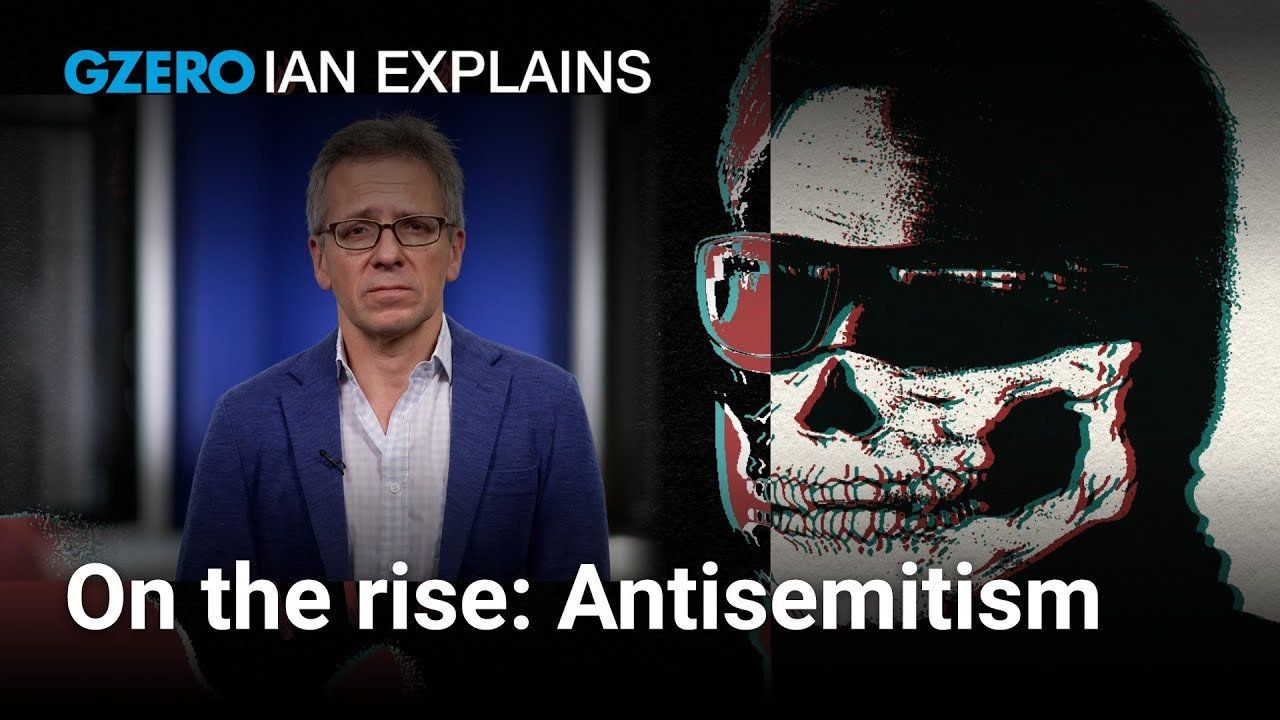
Antisemitism is as old as civilization. An ancient Greek historian in the second century BCE railed against the “ridiculous practices” of the Jews and the “absurdity of their law.” And Shakespeare’s Shylock once asked, “If you prick us, do we not bleed?” But lately, it feels like this particularly ugly trend is back in fashion. And the numbers back that up, Ian Bremmer explains on GZERO World.
The anti-defamation league found 3,700 instances of antisemitic harassment, vandalism, or assault around the country last year alone, the highest number in 43 years. The FBI has also marked an uptick in hate crimes, with nearly two-thirds of all hate crimes targeting Jews.
Remember the sight of watching torch-bearing white supremacists marching on Charlottesville in 2017’s Unite the Right Rally? Then on October 27, 2018, a gunman killed 11 worshippers in Pittsburgh’s Tree of Life synagogue, in the deadliest antisemitic attack in US history. And in January of 2022, a British citizen radicalized by Islamic extremists walked into a Texas synagogue and took a Rabbi and several others hostage, though fortunately, the congregants managed to escape unharmed.
So how did we get here? Or has America always had this ugly undercurrent of hate bubbling beneath its surface, waiting for the right moment—movement—to erupt? It’s a painful question to face, but if we want to avoid the next Tree of Life tragedy, we have no choice.